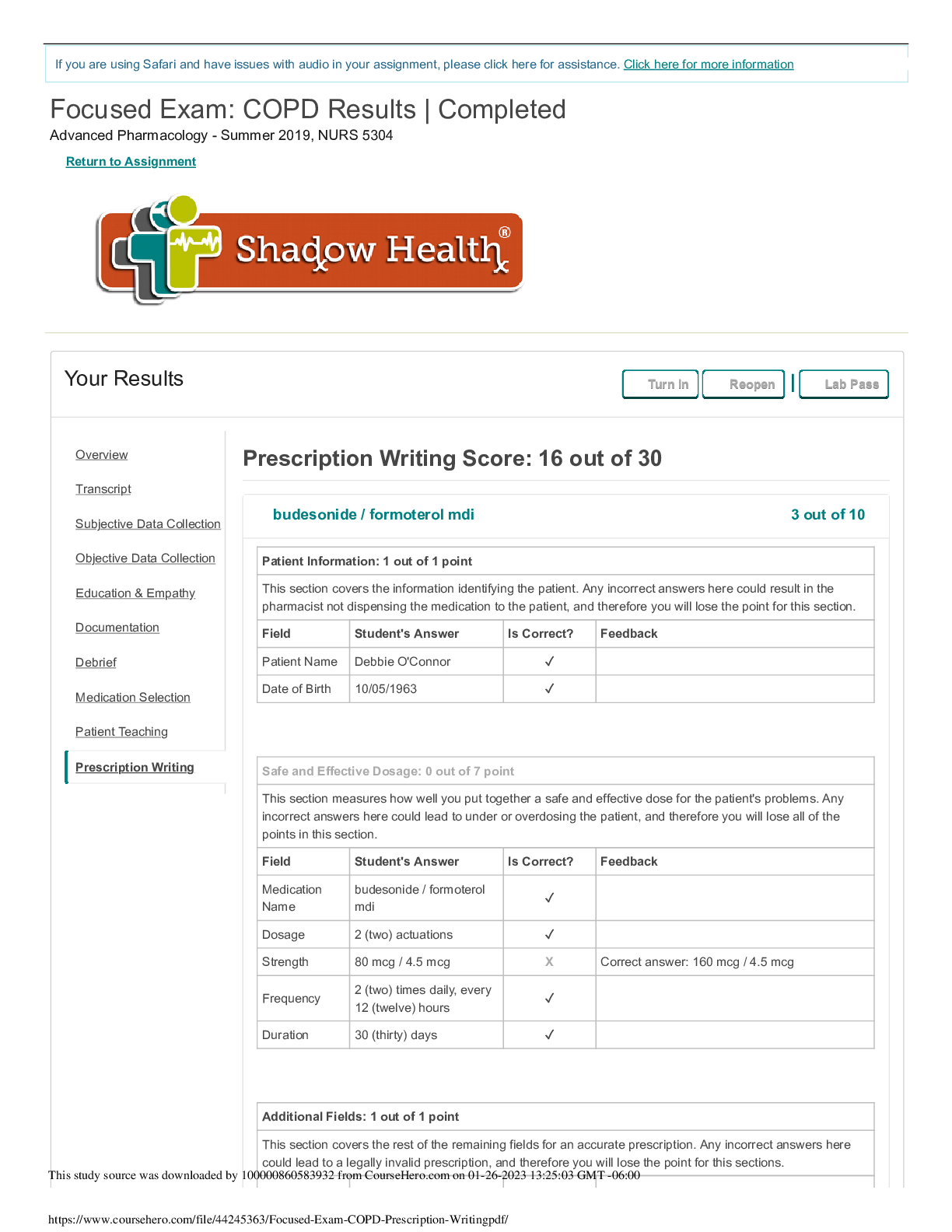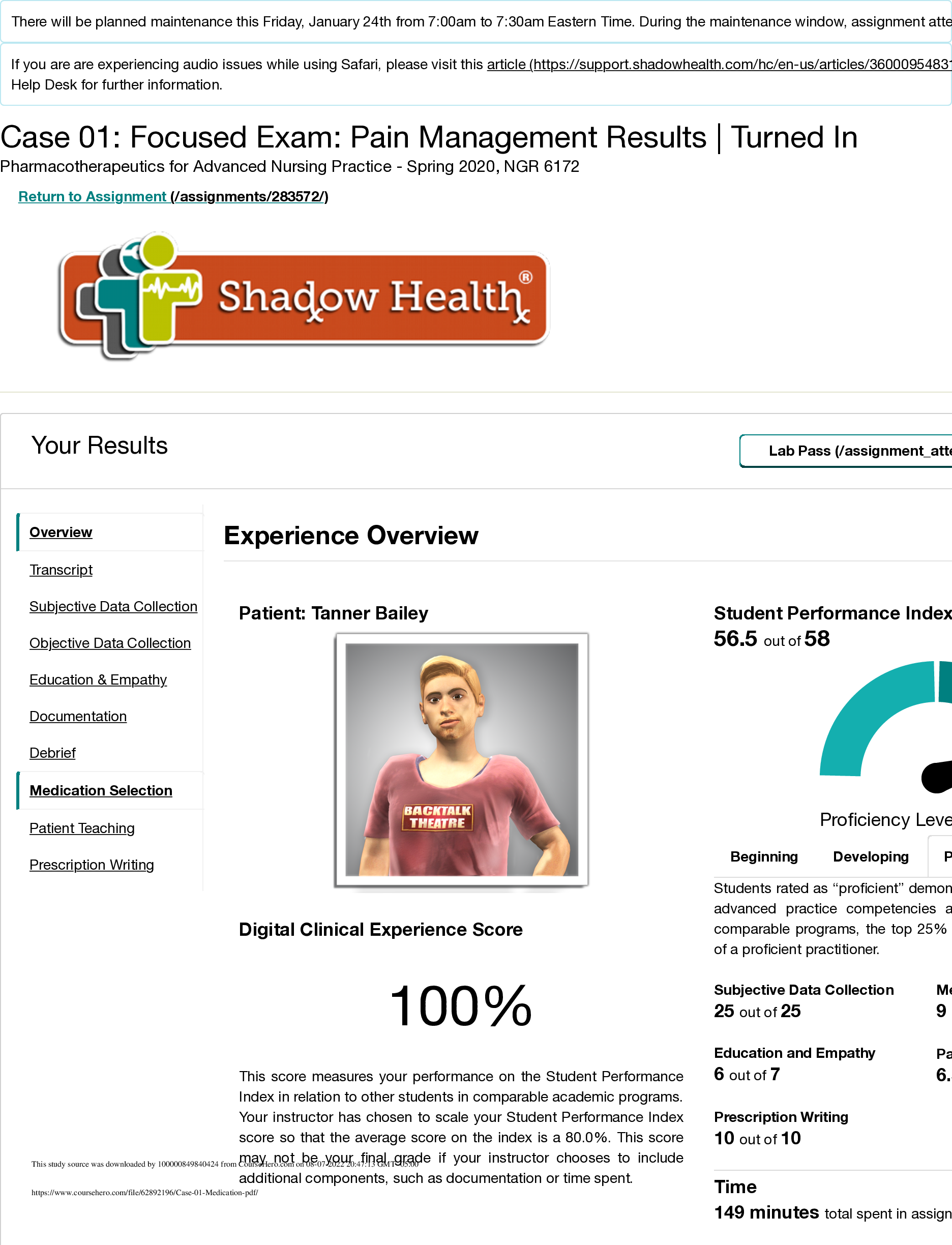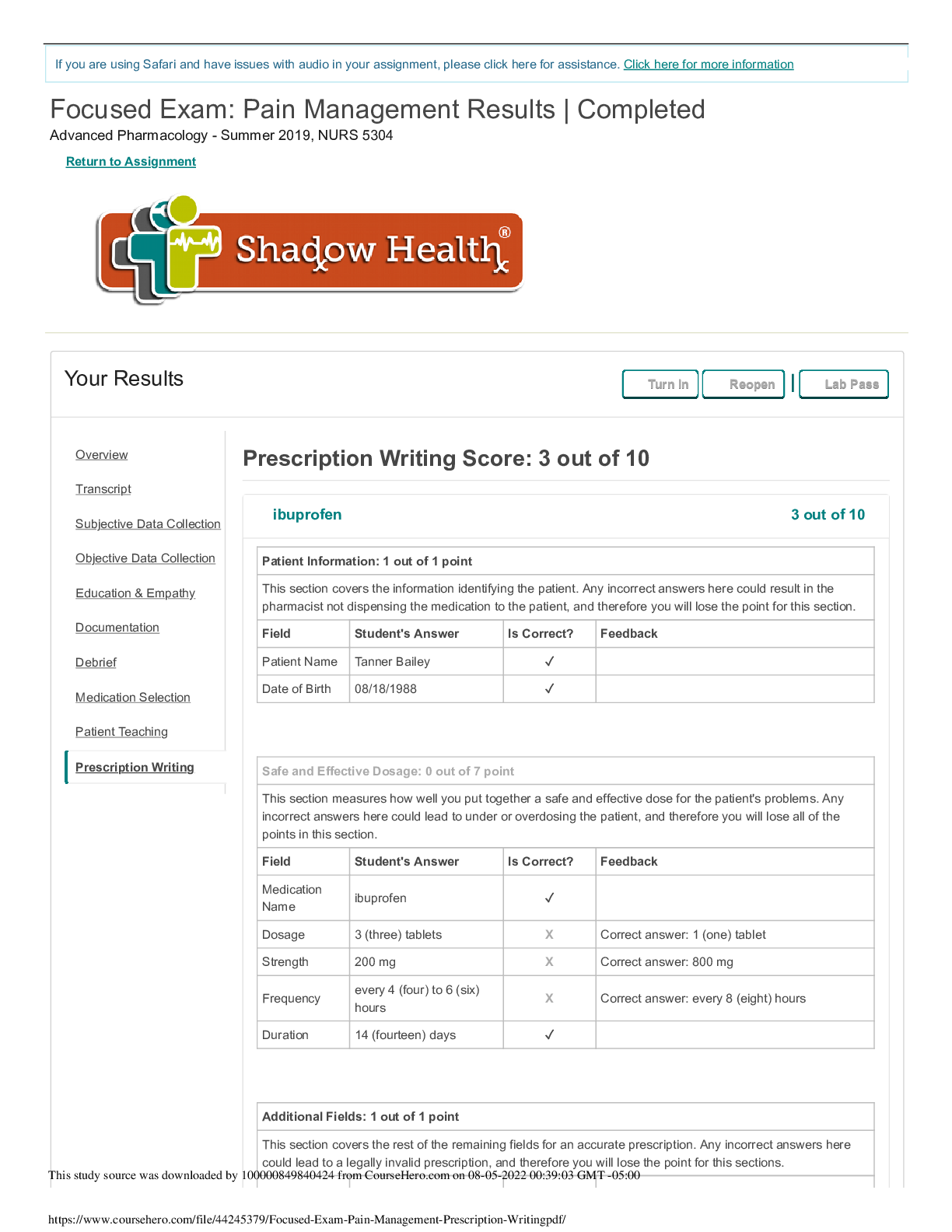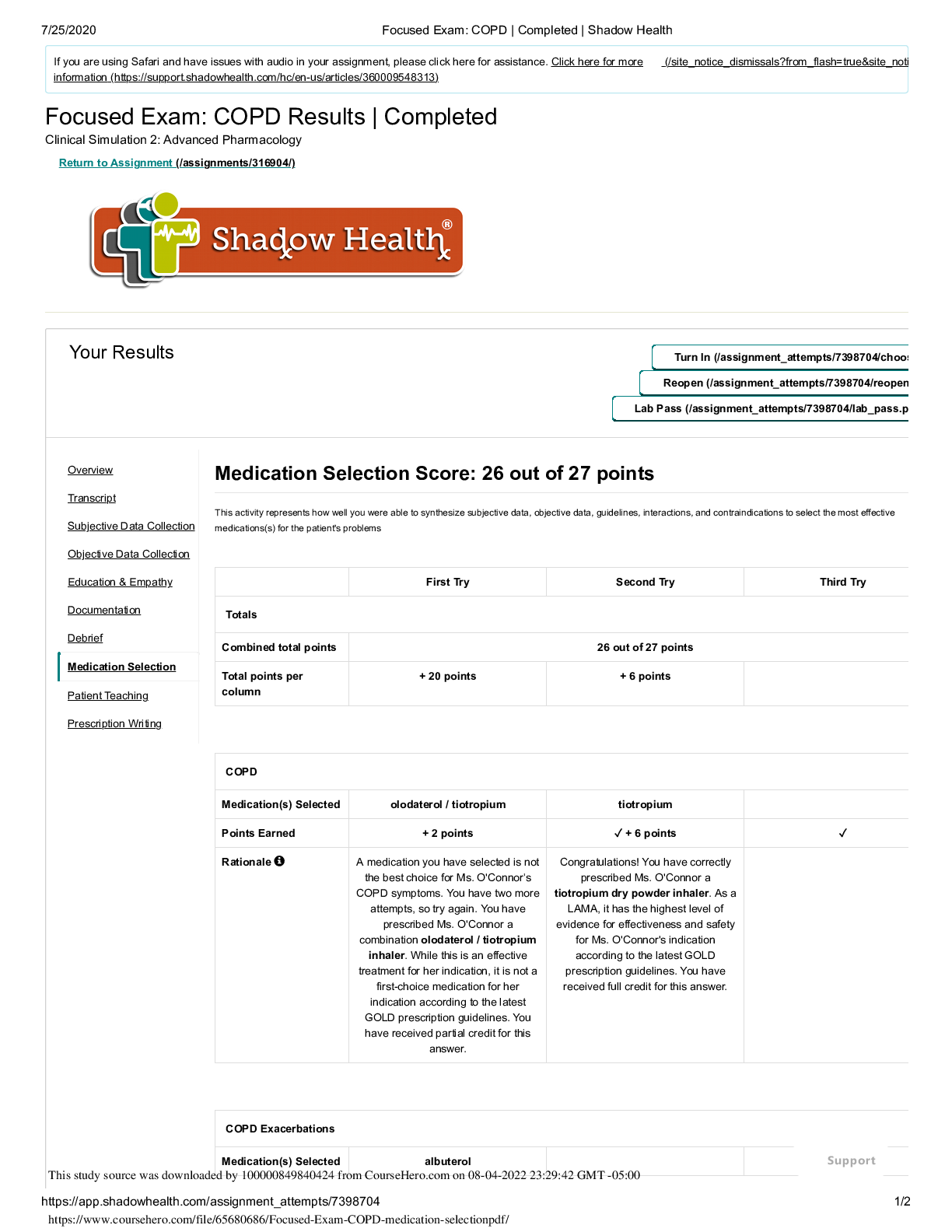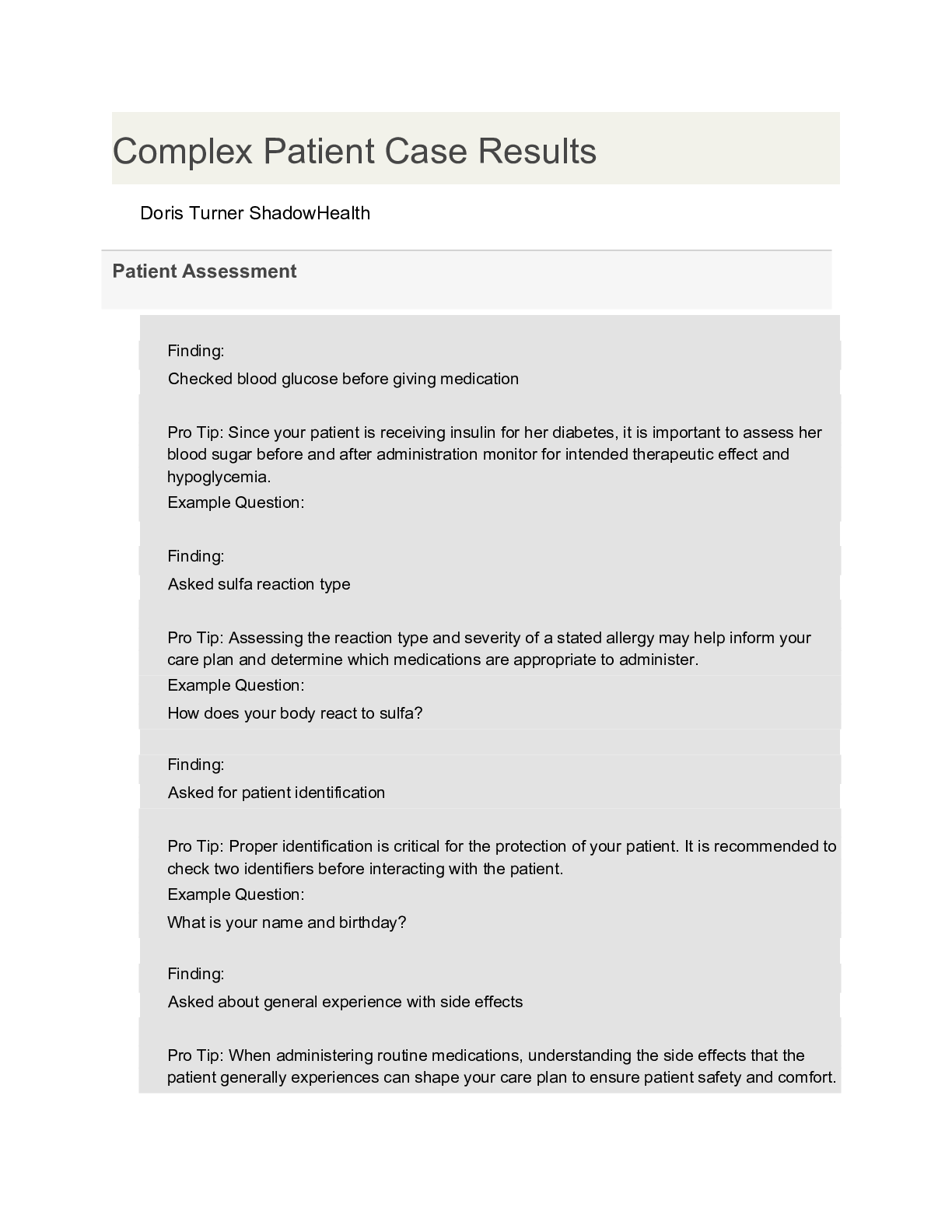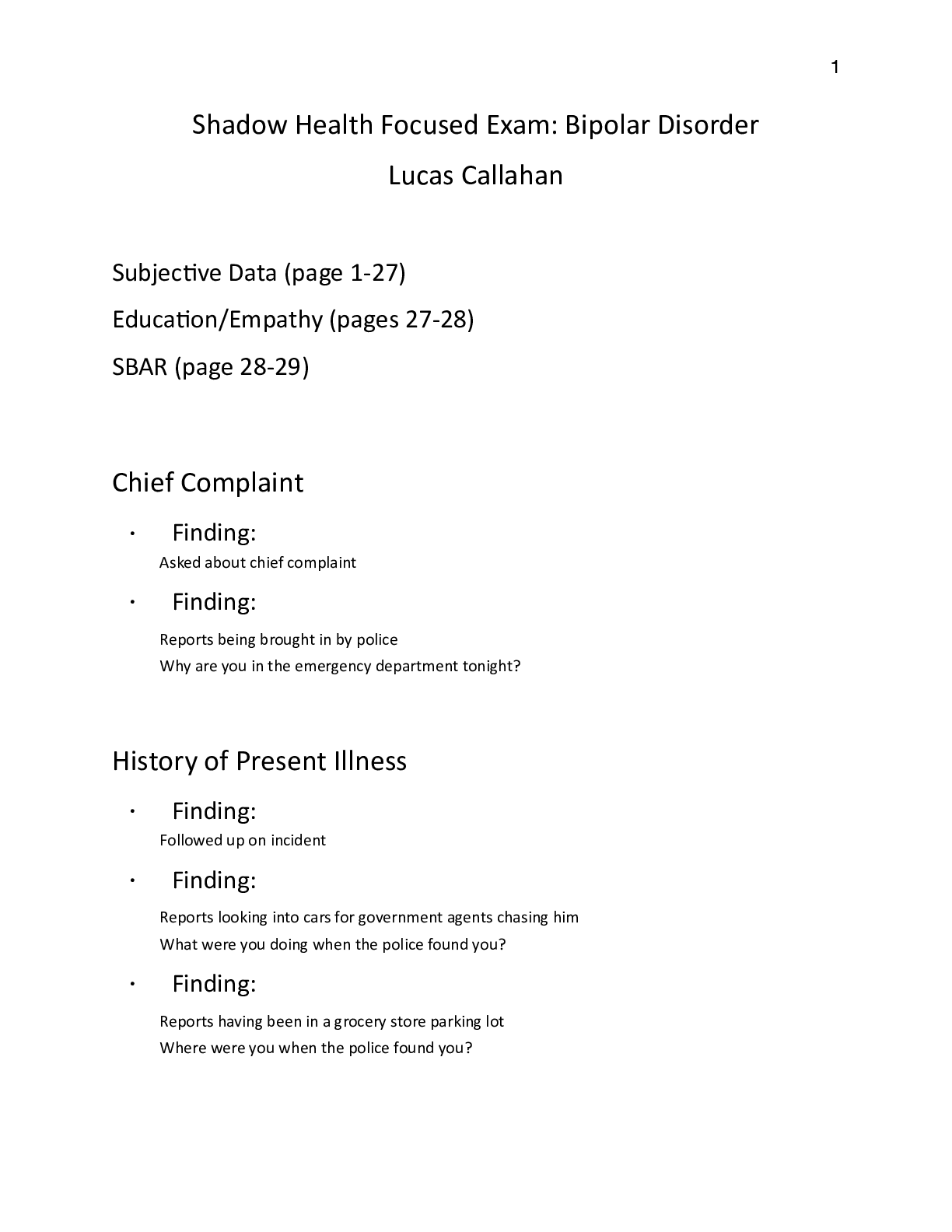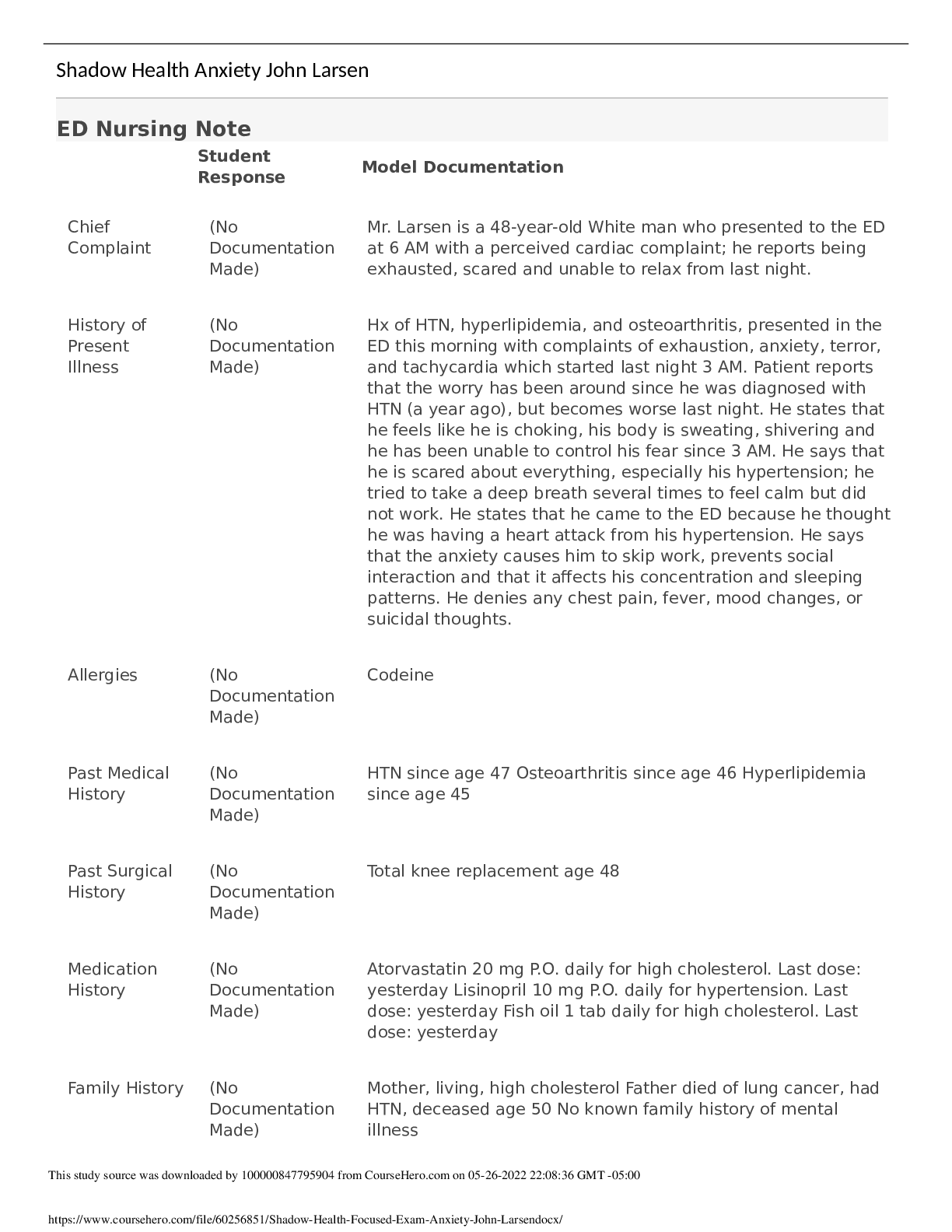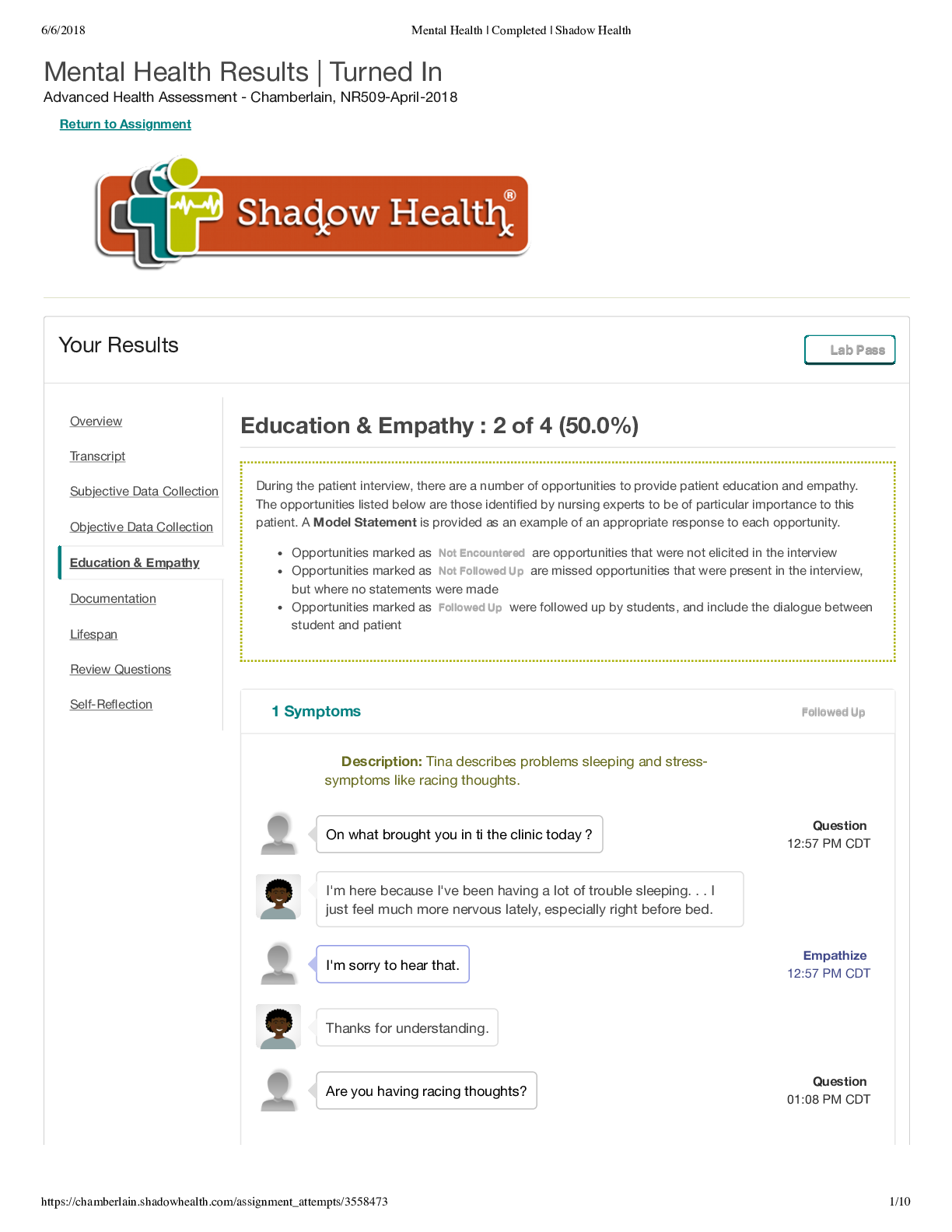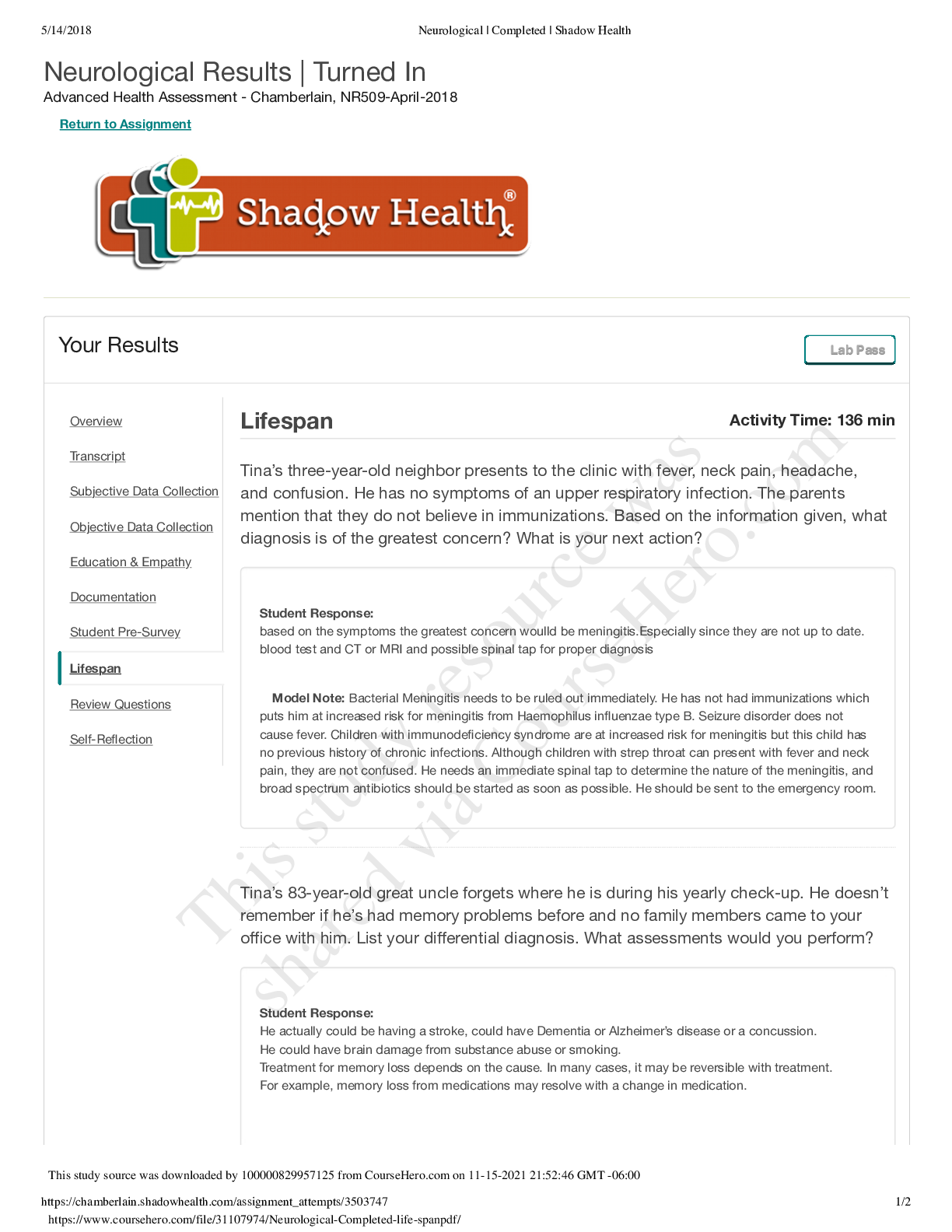*NURSING > SHADOW HEALTH > NR 509 Mental Health Results | Life Span ( GRADED 97.7% ) (All)
NR 509 Mental Health Results | Life Span ( GRADED 97.7% )
Document Content and Description Below
Mental Health Results | Turned In Advanced Health Assessment - Chamberlain, NR509-April-2018 Return to Assignment Your Results Lab Pass Lifespan Activity Time: 8 min ... Tina’s seven-year-old cousin is having trouble in school. His teachers complain of behavior problems and he has difficulty concentrating. List your differential diagnosis. What assessments would you perform? Student Response: differential diagnosis. 1.Anxiety Disorders 2.Bipolar Affective Disorder 3.Depression 4.Dysthymic Disorder 5.Hyperthyroidism and Thyrotoxicosis 6.Posttraumatic Stress Disorder 7.Sleep Disorders What assessments would you perform? There's no specific test for ADHD, but making a diagnosis will likely include: 1. Medical exam- to help rule out other possible causes of symptoms 2. Information gathering- such as any current medical issues, personal and family medical history, and school records 3. Interviews or questionnaires -for family members, your child's teachers or other people who know your child well, such as babysitters and coaches 4. ADHD criteria from the Diagnostic and Statistical Manual of Mental Disorders DSM-5, published by the American Psychiatric Association 5. ADHD rating scales to help collect and evaluate information about your child Model Note: The differential diagnosis includes hearing impairment, ADHD, autism, and other pervasive developmental disorders. Further assessments should include a history of behavioral, social, verbal, motor, and learning problems to guide a psychological diagnosis, a hearing test to rule out hearing impairment, and Denver II test to rule out developmental delay. The DSM-IV should be consulted for diagnosis of a psychological disorder. Tina’s 80-year-old great aunt complains that she can’t sleep unless she drinks alcohol before bed. She mentions that her husband died last month. Her children visited for the funeral, but recently returned to their homes out-of-state, leaving Tina’s great aunt alone in her home. What risks might you be concerned about? What would you include in your treatment plan? Student Response: I will be concerned that if she is drinking it will make her gait unsteady if she has to use the bathroom, etc. I would be worried that after the families returned to their homes, she is alone, and may begin drinking more ofthen. I would encourage her to attend a grief counselor, or grief counseling group 1- 2 timers per week. Also would want to know what type of alcohol she is drinking before bed, is it a glass of wine or a bottle of wine, or a mixed drink or straight vodka or gin. How much is she drinking before bed? Model Note: Her insomnia and alcohol use suggest that she is struggling with depression, most likely related to the death of her husband. Her use of alcohol as a sleep-aid puts her at risk of alcohol-dependence, which is especially unsafe given that she lives alone. Tina’s great aunt's age, social isolation, alcohol use, and widowed status puts her at a high risk for suicide. She is also at increased risk for falls and injuries. Treatment plans should include a counseling referral, antidepressant medication, a sleep-aid, and a discussion about alcohol use and sleep hygiene. © Shadow Health® 2018 [Show More]
Last updated: 2 years ago
Preview 1 out of 2 pages

Buy this document to get the full access instantly
Instant Download Access after purchase
Buy NowInstant download
We Accept:

Reviews( 0 )
$11.50
Can't find what you want? Try our AI powered Search
Document information
Connected school, study & course
About the document
Uploaded On
Nov 16, 2021
Number of pages
2
Written in
Additional information
This document has been written for:
Uploaded
Nov 16, 2021
Downloads
0
Views
144




